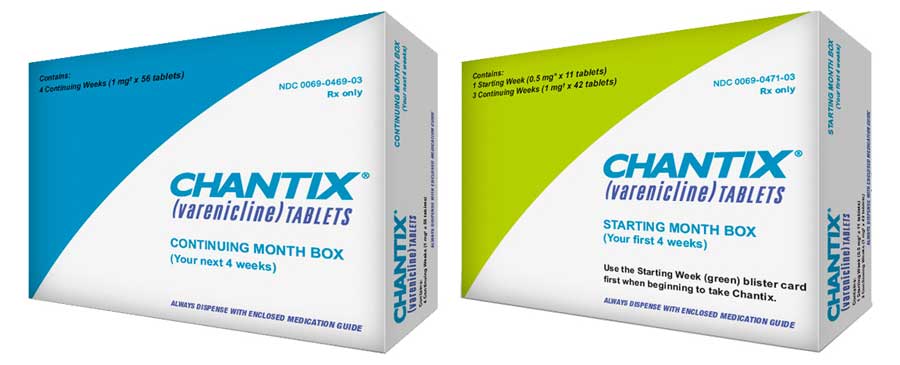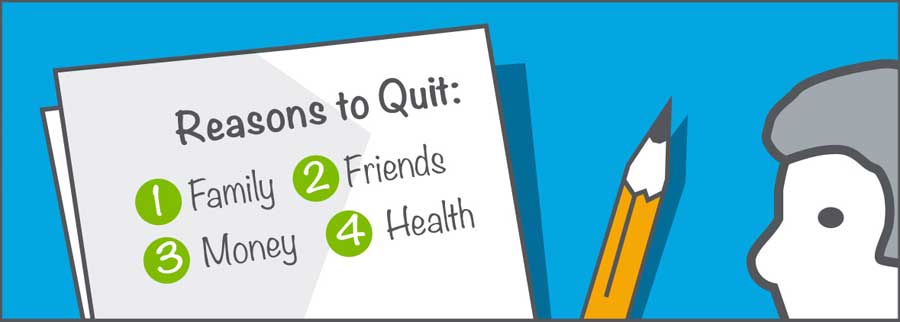
Buy Chantix (Varenicline) Online
| Drug Name: | Chantix (Varenicline) |
|---|---|
| Tablet Strength: | 90 pills x 1mg |
| Best Price: | $450 (Per Pill $5.00) |
| Where to buy: |
Smoking Cessation With Chantix
Quitting smoking is a journey - and it's good to have a strong support system. Here you can obtain information to help guide you through your quit.
Here's what you'll get:
- Support to help you get ready to quit tobacco and successfully stop smoking (Buying Chantix Online)
- Information on what to expect while taking Chantix.
- Guided experience allowing you to explore content and tips on how to manage behaviors related to smoking.
- Resources to help keep you motivated during your quit journey.
About Chantix
Chantix is a newly released anti-smoking pill that is nicotine-free and approved by the FDA. Chantix reduces the urge to smoke so when it's time to quit, you'll be ready. Chantix is a proven way to help smokers quit. Chantix is a nicotine-free prescription pill that, along with support, can help you quit smoking. In studies where patients smoked about a pack of cigarettes per day, Chantix reduced the urge to smoke. In fact, in the largest study with smoking cessation medication, Chantix helped significantly more people quit than the nicotine patch. Chantix is a prescription medication to help adults stop smoking. Only a healthcare provider can prescribe it. Depending on your quit approach, you take it for 12 or 24 weeks (3 or 6 months).

How Chantix works
When you start taking Chantix, you've taken a step toward becoming a nonsmoker. Learn how Chantix is believed to help smokers quit. To understand how Chantix is believed to work, it's important to know how the nicotine from cigarettes affects you.When you smoke, nicotine is sent to your brain, where it attaches to nicotine receptors. A chemical called dopamine is released, making you feel good. Then your dopamine levels drop. This makes you want another cigarette. Chantix attaches to nicotine receptors in the brain, so that nicotine can't. With Chantix, dopamine is still released, but less so than with nicotine. It is believed that these actions are how Chantix may help you quit smoking. Chantix works by cutting the pleasure of smoking and reducing the withdrawal symptoms that lead smokers to light up over and over again. Chantix latches on to the same receptors in the brain that nicotine binds to when inhaled in cigarette smoke, an action that leads to the release of dopamine in the pleasure centers of the brain. Taking the drug blocks any inhaled nicotine from reinforcing that effect.
How long will I be able to keep smoking while taking Chantix?
After you start taking Chantix, you can smoke up until your quit date, which depends on the quit approach you choose. There are 3 approaches to using Chantix to help you quit. When taking Chantix, you can choose a quit date that is after a week or up to a month after your start date. Or, if you're sure you're not willing or able to quit that abruptly, you can start Chantix and then cut your smoking in half each month with the goal of quitting at the end of 12 weeks (3 months), or sooner.
How is Chantix different from Nicotine Replacement Therapies (NRTs)?
Chantix is nicotine-free. NRTs like the patch, gum, lozenges, nasal spray, and inhalers all contain nicotine. In fact, in the largest smoking cessation medication study of its kind, Chantix helped significantly more people quit than the nicotine patch. You should discuss the differences between Chantix and NRTs with your healthcare provider, who can help you decide which smoking cessation treatment may be right for you. You should not use Chantix while using other medicines to stop smoking. Using Chantix with a nicotine patch may cause nausea, vomiting, headache, dizziness, upset stomach, and tiredness to happen more often than if you just use a nicotine patch alone. Remember - before taking Chantix, tell your healthcare provider if you have ever had depression or other mental health problems. You should also tell your healthcare provider about any symptoms you may have had during other times you tried to quit smoking, with or without Chantix.
What To Expect With Chantix
If you're just getting started, you probably have some questions about how you might feel and what you might expect when you decide to quit smoking with Chantix. You have a lot to gain by quitting. There are many health benefits to quitting smoking. You can also save money by not buying cigarettes. In the largest study evaluating smoking cessation medications, Chantix helped more people quit smoking and remain smoke-free during weeks 9 through 12 AND during weeks 9 through 24, compared with the nicotine patch and sustained-release buproprion. This study evaluated people both with and without a history of mental health conditions.
How Might You Feel When Quitting Smoking?

When you try to quit smoking, with or without Chantix, you may have symptoms that may be due to nicotine withdrawal. These may include: urge to smoke, depressed mood, trouble sleeping, irritability, frustration, anger, feeling anxious, difficulty concentrating, restlessness, decreased heart rate, increased appetite, and weight gain. Some people have even experienced suicidal thoughts when trying to quit smoking without medication. Sometimes quitting smoking can lead to worsening of pre-existing mental health problems, such as depression. If you are feeling this way, let your healthcare provider know immediately. You may also want to talk to a trusted family member or friend.
You can quit smoking and live smoke free. Smoking is an addiction which makes quitting hard. But, you don't have to do it on your own. Your health care provider can help. Counseling and medication improve your ability to quit for good. It's never too late to quit.
How Might You Feel When Taking Chantix?
Some people experience new or worse mental health problems, such as changes in behavior or thinking, aggression, hostility, agitation, depressed mood, or suicidal thoughts or actions while taking or after stopping Chantix. However, these symptoms happened more often in people who had a history of mental health problems. Stop taking Chantix, and call your healthcare provider right away if you, your family, or caregiver notice any of these symptoms. Before starting Chantix, tell your healthcare provider if you ever had depression or other mental health problems. The most common side effects of Chantix include nausea, sleep problems (trouble sleeping or vivid, unusual, or strange dreams), constipation, gas, and/or vomiting. If you have side effects that bother you or don't go away, tell your healthcare provider. He or she may be able to help you manage them.
How to take Chantix
Chantix is a 3- or 6-month treatment designed to help you quit smoking. It's important to take Chantix as directed by your healthcare provider to give yourself the best chance of success. Always take Chantix after eating, with a full (8 oz) glass of water. During the first week of taking Chantix, your dose will gradually increase. Chantix dosing at a glance.
- Days 1-3: Take 1 white pill (0.5 mg) daily.
- Days 4-7: Take 1 white pill (0.5 mg) in the morning and 1 in the evening.
- DAY 8 to the end of treatment: Take 1 blue pill (1 mg) in the morning and 1 in the evening.
This dosing schedule may not be right for everyone. Talk to your healthcare provider if you're having side effects. He or she may reduce your dose.
How much does Chantix cost?
The cost for Chantix is around $450-$500 for a supply of 53 tablets, depending on the pharmacy you visit. The cost of the same package of generic Chantix (Champix, Varenicline) is around $100-$150. Chantix may be covered by many insurance plans. Cost may vary depending on your coverage. Call your health plan provider to find out more. Eligible patients may be able to save on Chantix.
Is there a generic form of Chantix?
Yes, there is a generic form of Chantix available. Speak to your doctor or pharmacist to learn more. Although generic forms of Chantix are now available, only brand-name Chantix has been prescribed for more than 14 million people. And with brand-name Chantix, you have the assurance that Pfizer stands behind its manufacturing standards. Can I save money on Chantix? You may be able to save with generic Chantix (Champix, varenicline tartrate).
Potential Side Effects
When you try to quit smoking, with or without Chantix, you may have symptoms that may be due to nicotine withdrawal, including:
- Urge to smoke
- Depressed mood
- Trouble sleeping
- Irritability
- Frustration
- Anger
- Feeling anxious
- Difficulty concentrating
- Restlessness
- Decreased heart rate
- Increased appetite
- Weight gain
Starting with Chantix

During the first week of taking Chantix, you will slowly increase the dose over 7 days to give it time to build up in your body. After you start taking Chantix, you can smoke until your quit date. There are 3 ways to quit with Chantix, and your quit date will depend on which way you choose. You should talk to your healthcare provider about which quit approach is best for you. If you use the Fixed Quit Approach or the Flexible Quit Approach, you will take Chantix for 12 weeks (3 months). If you have completely quit smoking by the end of 12 weeks, your healthcare provider may prescribe Chantix for another 12 weeks to help you stay smoke-free. Or, if you and your healthcare provider decide that the Gradual Quit Approach is right for you, you will take Chantix for a total of 24 weeks. If you miss a dose, take it as soon as you remember. If it is close to the time for your next dose, skip the missed dose. Just take your next dose at your regular time. If you are motivated to quit smoking and did not succeed during prior Chantix treatment for reasons other than side effects, or if you returned to smoking after quitting, speak to your healthcare provider about whether another course of Chantix may be right for you. You should try to stop smoking on your quit date, but if you slip up and smoke, it doesn't mean you have failed. Keep trying!
